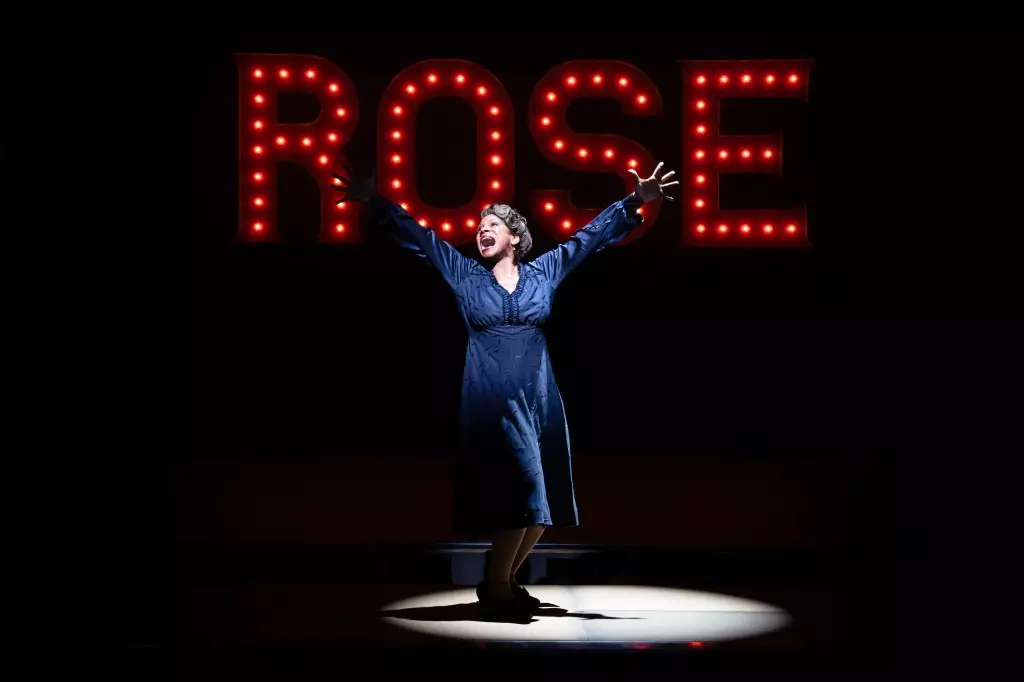Broadway, renowned for its vibrant theatrical culture, experienced a bustling holiday season characterized by soaring box office figures—a contrast sharply drawn against a notable setback. As productions competed for audience attention during this lucrative time, one significant revival, Gypsy, faced an unprecedented challenge that cast a shadow over the holiday cheer. This article delves into the box office successes enjoyed by many shows, while also analyzing the unfortunate circumstances surrounding Gypsy and the overall implications for Broadway.
The holiday week leading up to December 29 marked a historic moment for Broadway, with several shows reporting impressive revenues that broke house records. Chief among them was the beloved musical Wicked, which shattered the previous box office record by surpassing the $5 million mark. Such financial triumphs highlight the resilience and popularity of Broadway shows, especially during a time when many theatre-goers are eager to immerse themselves in live performances. The numbers don’t lie: Broadway collectively grossed an astounding $55.8 million, reflecting a whopping 26% increase from the previous week, signifying not only a holiday rush but also a growing enthusiasm for live theatre in general.
Amid this economic boom, the impact of attendance was equally significant. With total ticket sales soaring to 306,180, this volume represented a 19% increase over the same period the year prior. With nearly all seats filled—97% occupancy—the desire for live entertainment remains strong, suggesting that the appeal of Broadway extends beyond mere performances; it encompasses shared experiences that resonate with audiences.
In stark contrast to the success stories surrounding other productions, Gypsy, featuring the incredible talent Audra McDonald, faced a disheartening situation as it canceled seven out of eight performances during the holiday period. The cause? A virulent cold that swept through the cast and crew, hampering their ability to deliver spectacular performances. McDonald’s candid acknowledgment of these trials on social media illustrates the often hidden struggles underlying the glamorous façade of Broadway.
The decision to cancel performances not only meant a severe dip in revenue—a staggering loss of over $1.2 million from the previous week—but it also prevented Gypsy from fully capitalizing on the high demand for theater during this peak period. The missed opportunity becomes even more poignant as audiences were eager to see the show in its first full week of post-preview performance. This situation presents a complex dilemma for productions: while health and safety truly must take precedence, the financial repercussions—from ticket refunds to audience disappointment—can be equally daunting.
A Broader Look at Industry Trends
Importantly, the contrasting fortunes of Gypsy and its more successful counterparts invite a deeper look into the challenges and opportunities facing Broadway shows today. The elasticity of the box office, manifesting through ticket prices and seat availability, showcases not only the resilience of the industry but also the evolving preferences of theater-goers. With an average ticket price reaching an impressive $182.32—up $35.48 from the previous week—we observe a willingness among audiences to invest more for exceptional experiences.
This willingness to pay more is reflected in productions that added extra shows during the holiday period, allowing them to meet heightened demand successfully. Productions such as Aladdin, The Lion King, and MJ showcased extraordinary revenue figures, mirroring the possible future trajectory of Broadway if new shows can replicate their successes. However, these performances also serve as a reminder of the importance of consistency, particularly during high-stakes seasons when minor flaws or mishaps—like those faced by Gypsy—can have devastating consequences on a production’s financial health.
The holiday period on Broadway this year serves as both a celebration of resilience and a cautionary tale. While the triumphs of productions like Wicked illuminate the potential for spectacular success, Gypsy’s unfortunate setbacks are a humbling reminder of the unpredictability of live theater. As Broadway continues to navigate these highs and lows, the interplay between audience demand, artistic integrity, and logistical challenges will undoubtedly shape the landscape of theatrical production in the years to come.
As audiences flock to Broadway for hope, joy, and connection, the stories behind the glamour remind us that theater remains an ever-evolving art form that thrives on both brilliance and adversity. Thus, it will be interesting to monitor how productions respond to the lessons learned from such holiday seasons going forward, ensuring that Broadway remains a thriving cultural beacon capable of captivating audiences for generations to come.

